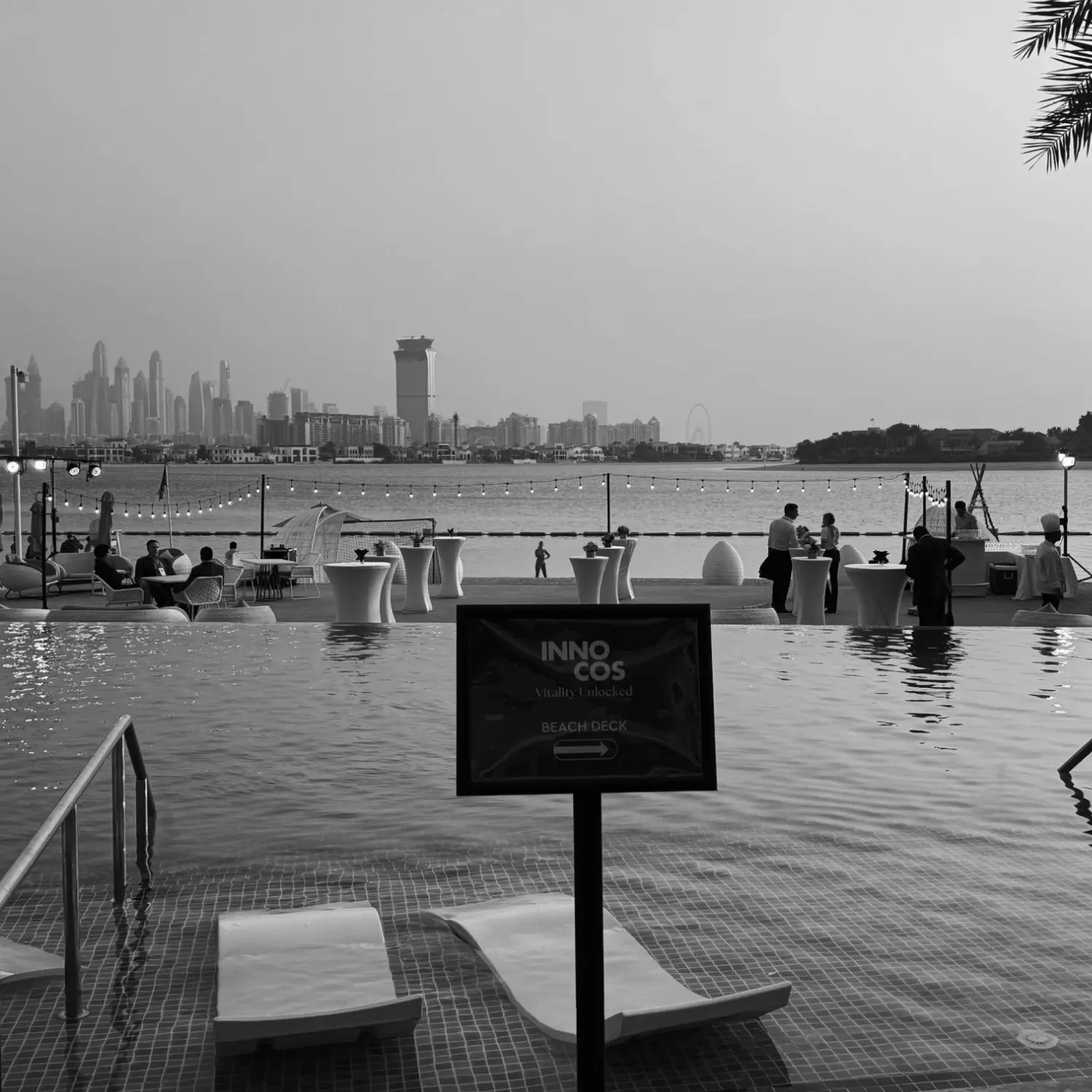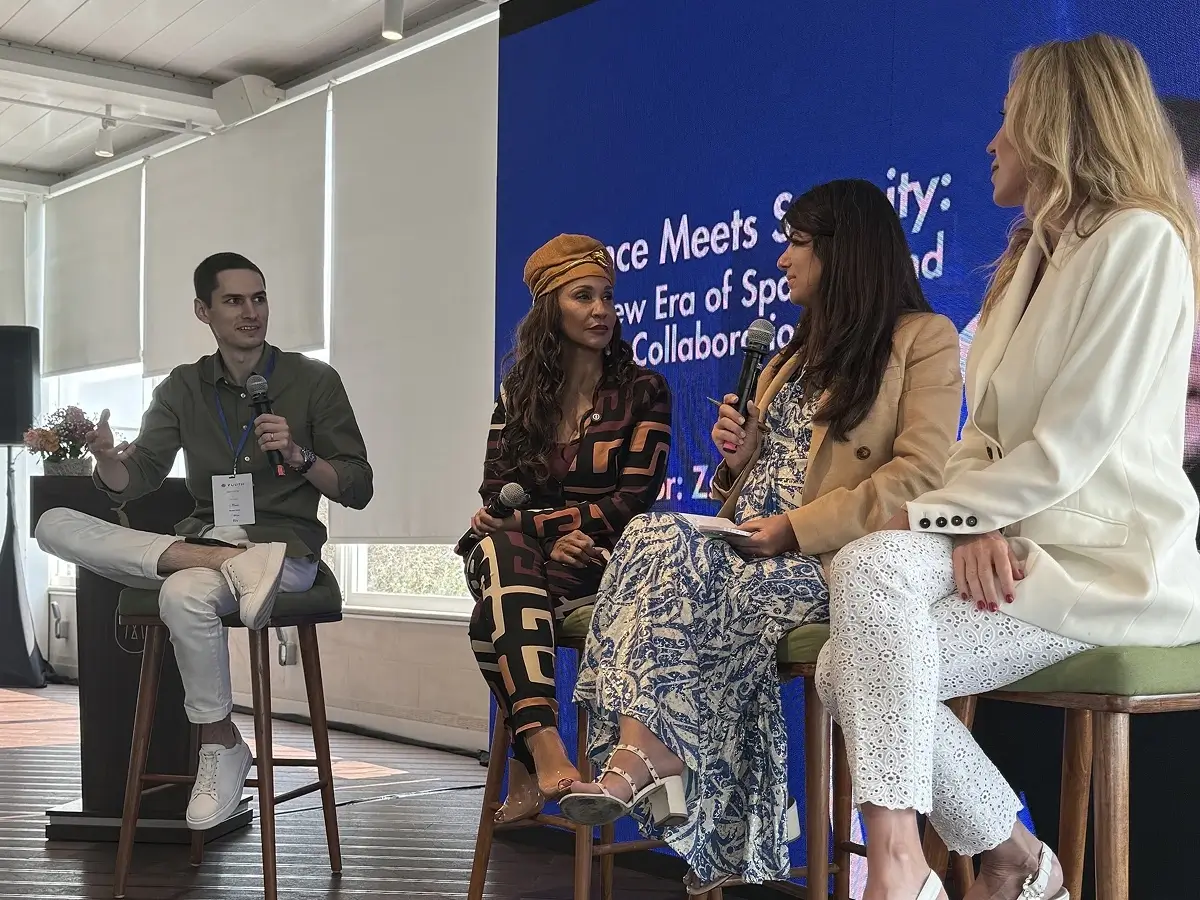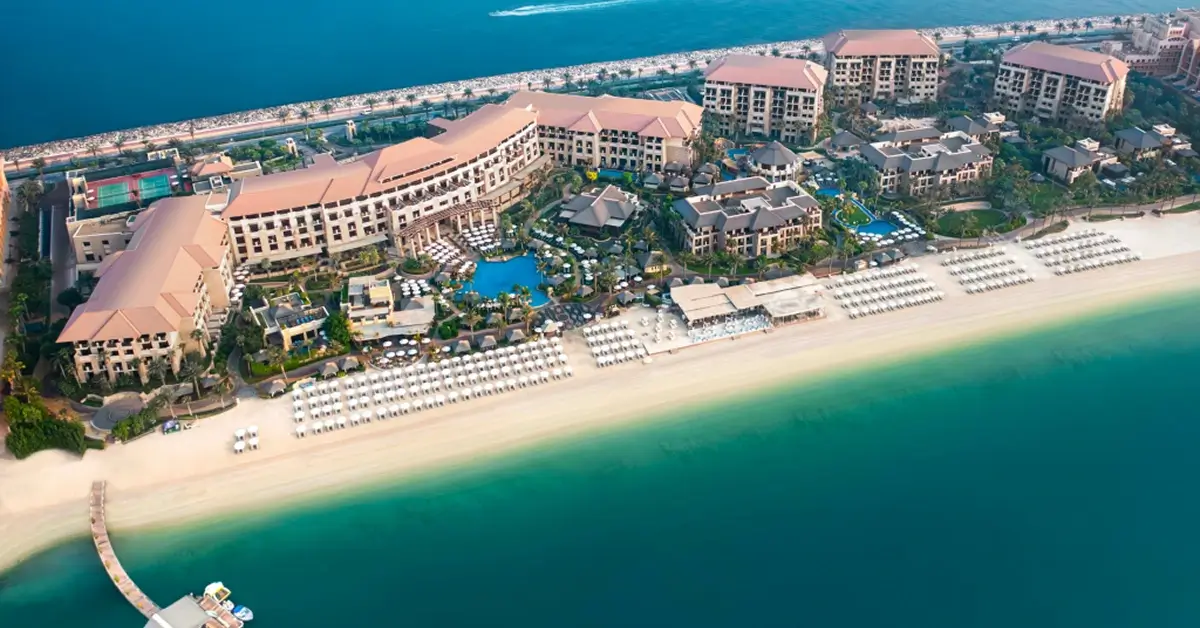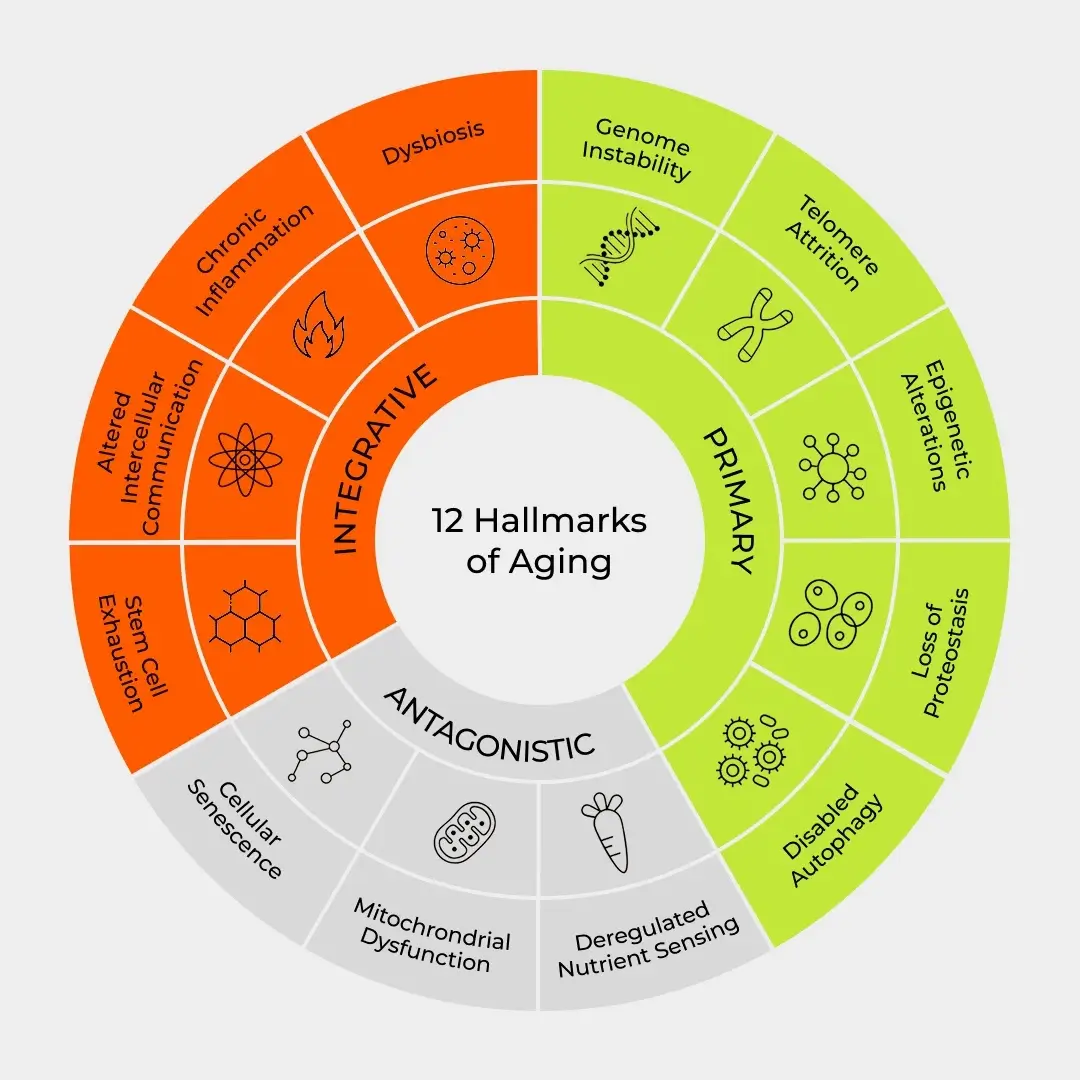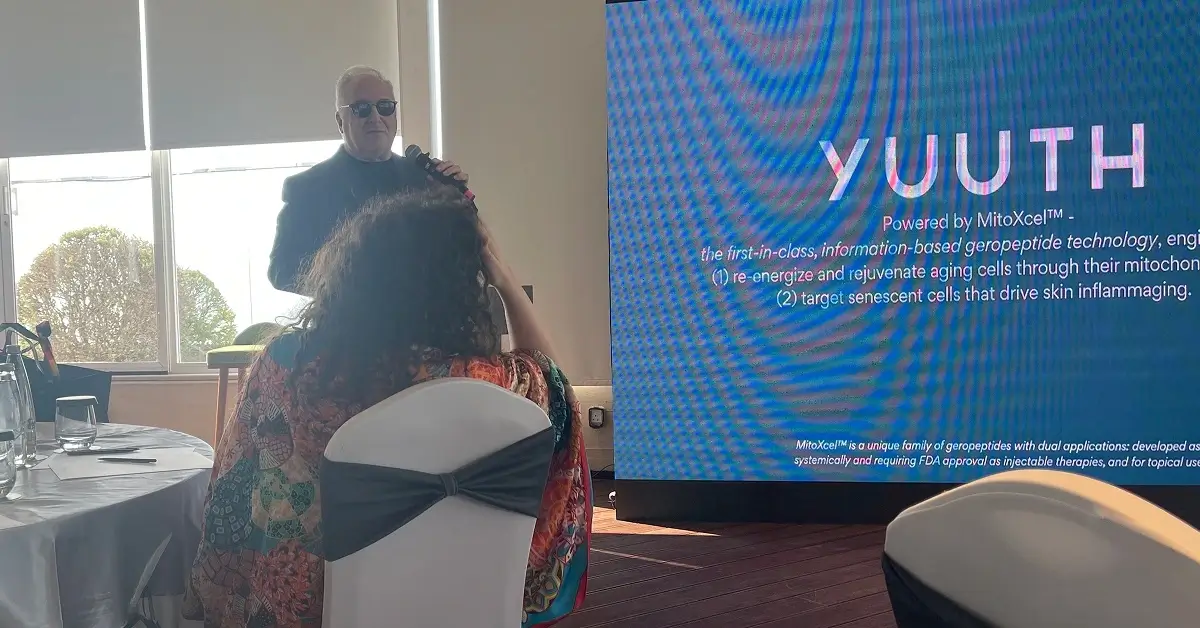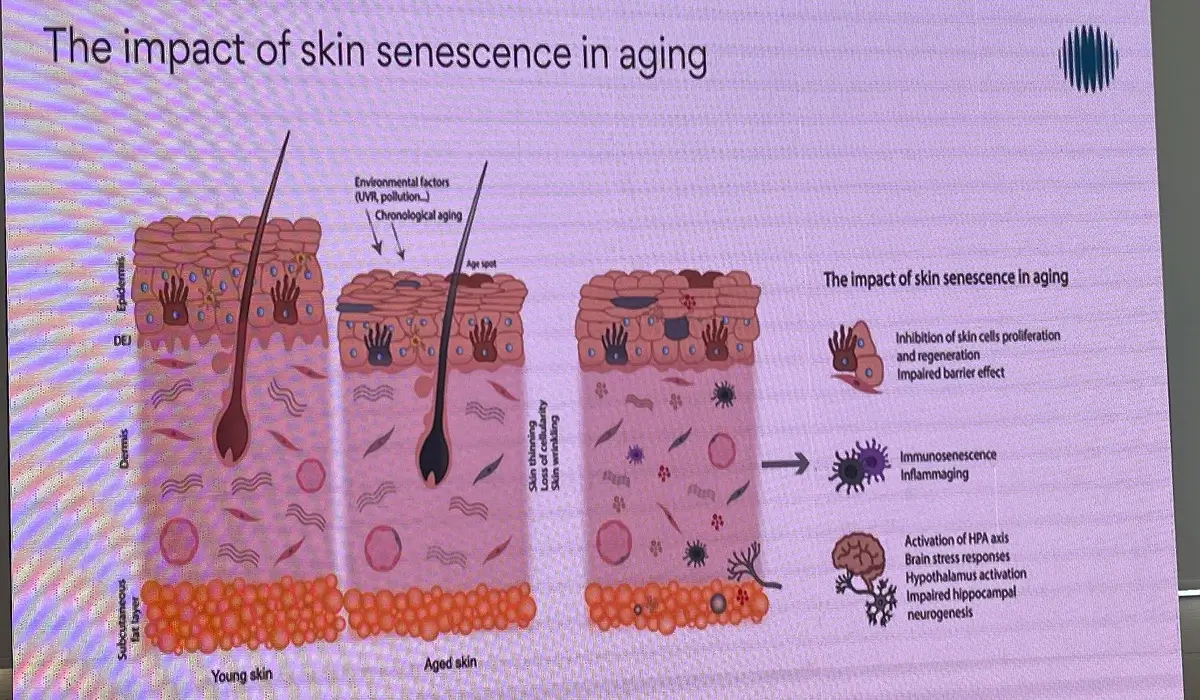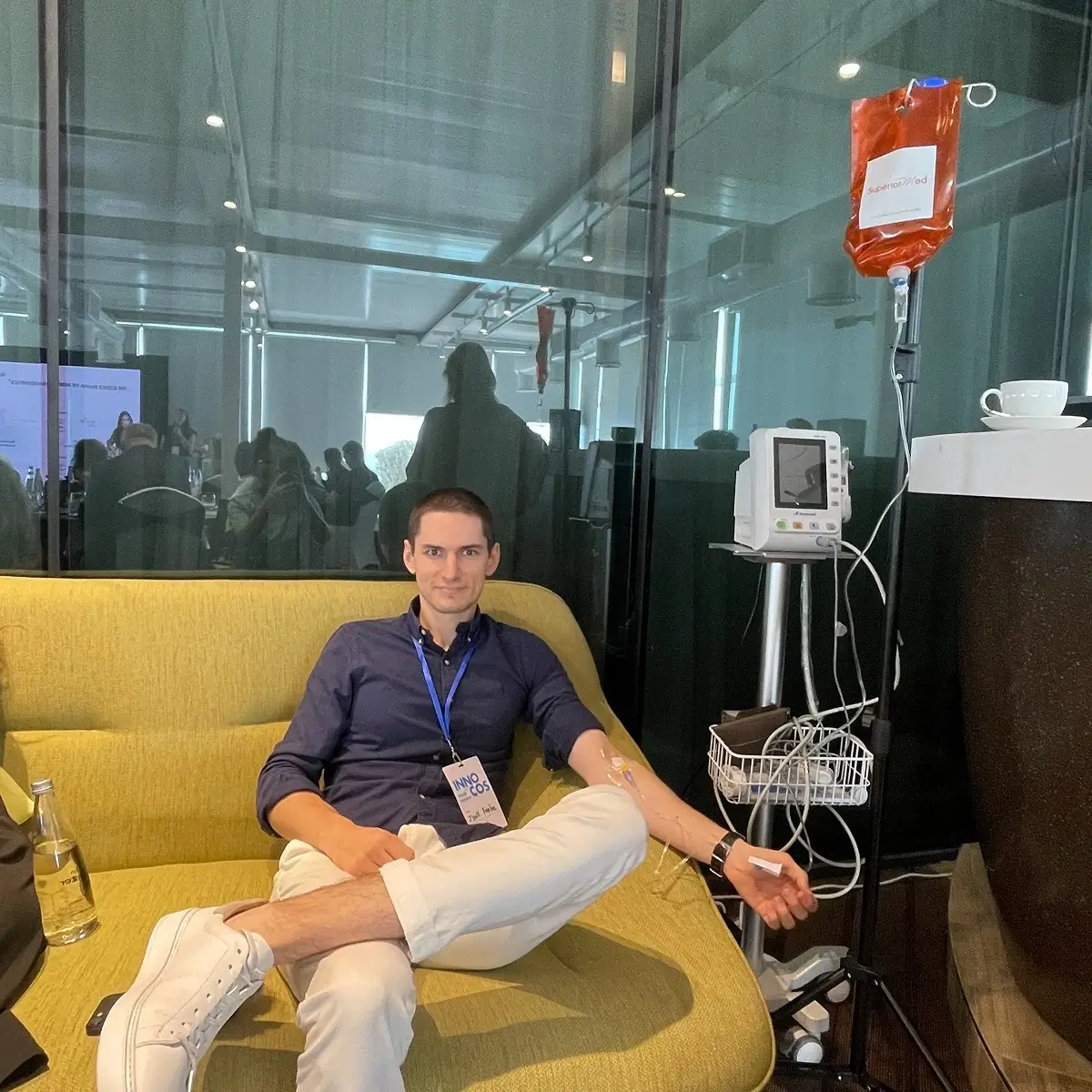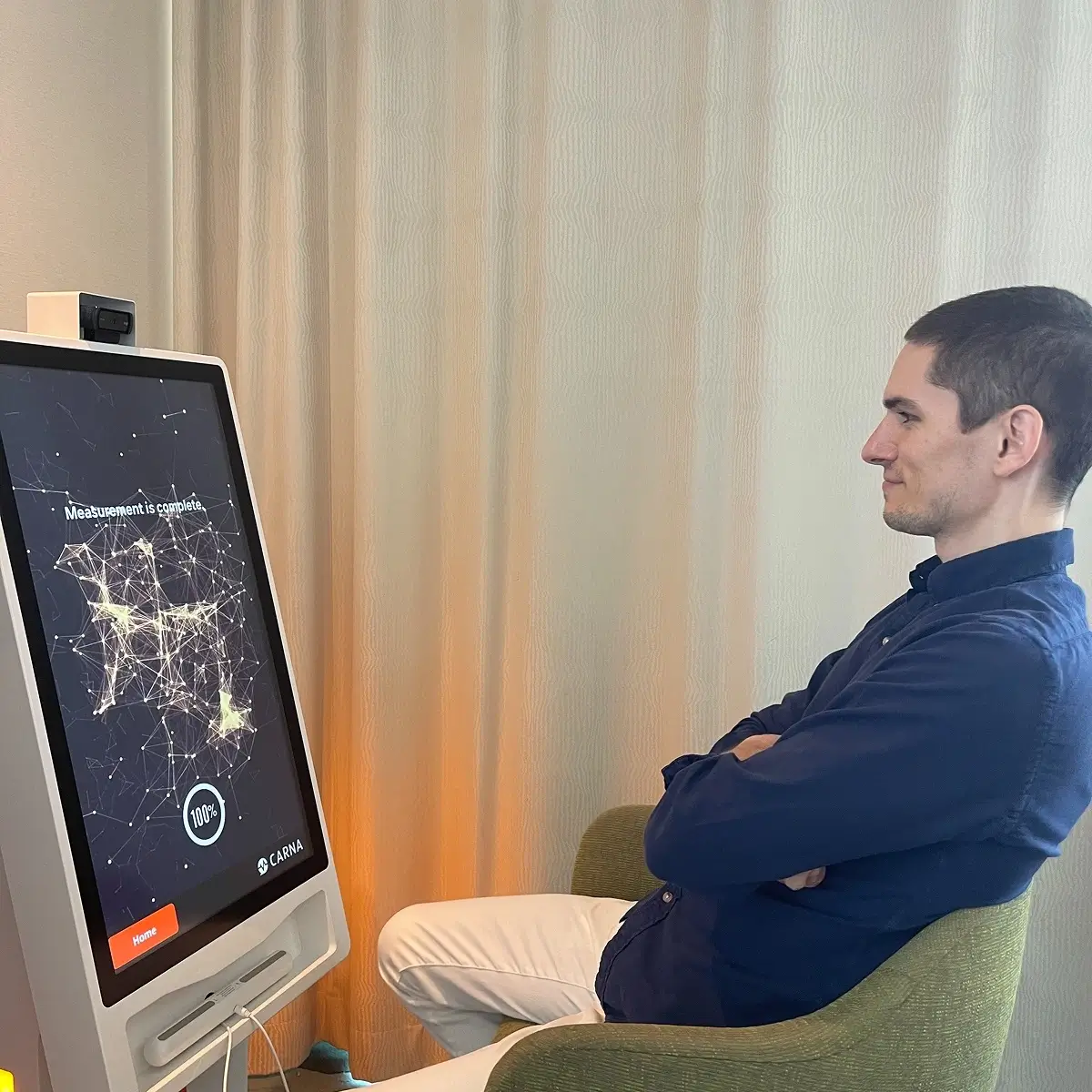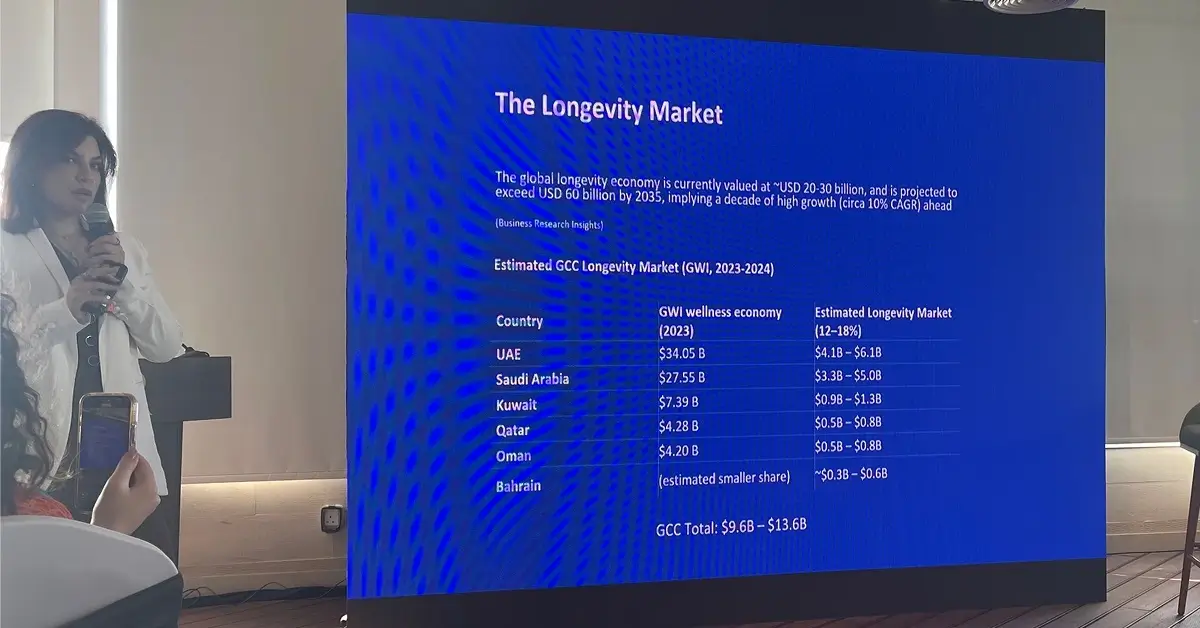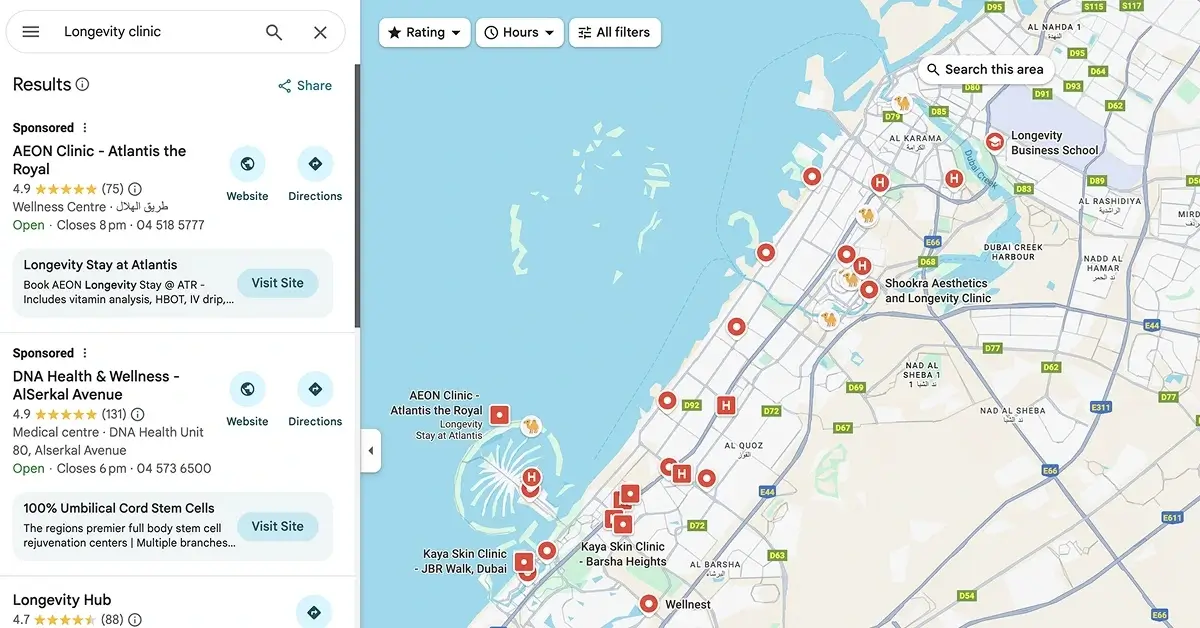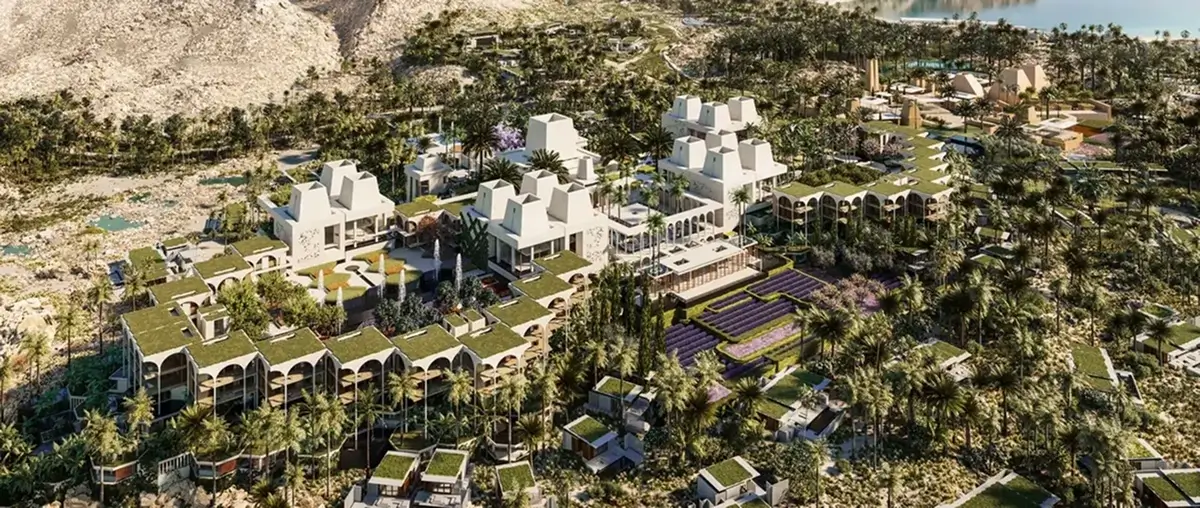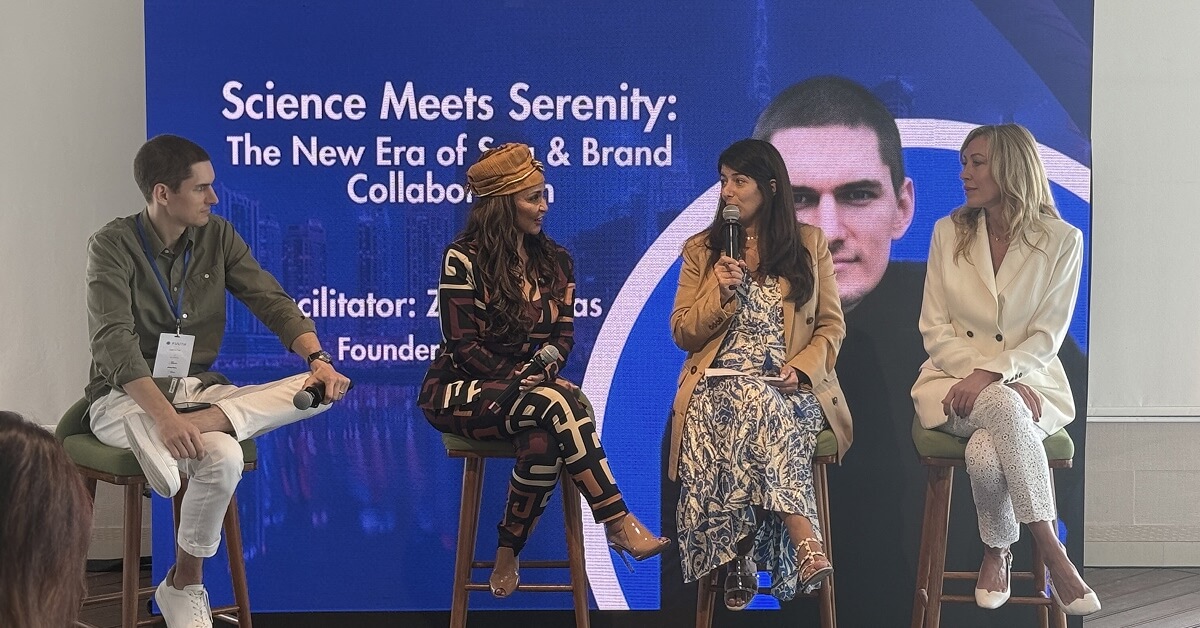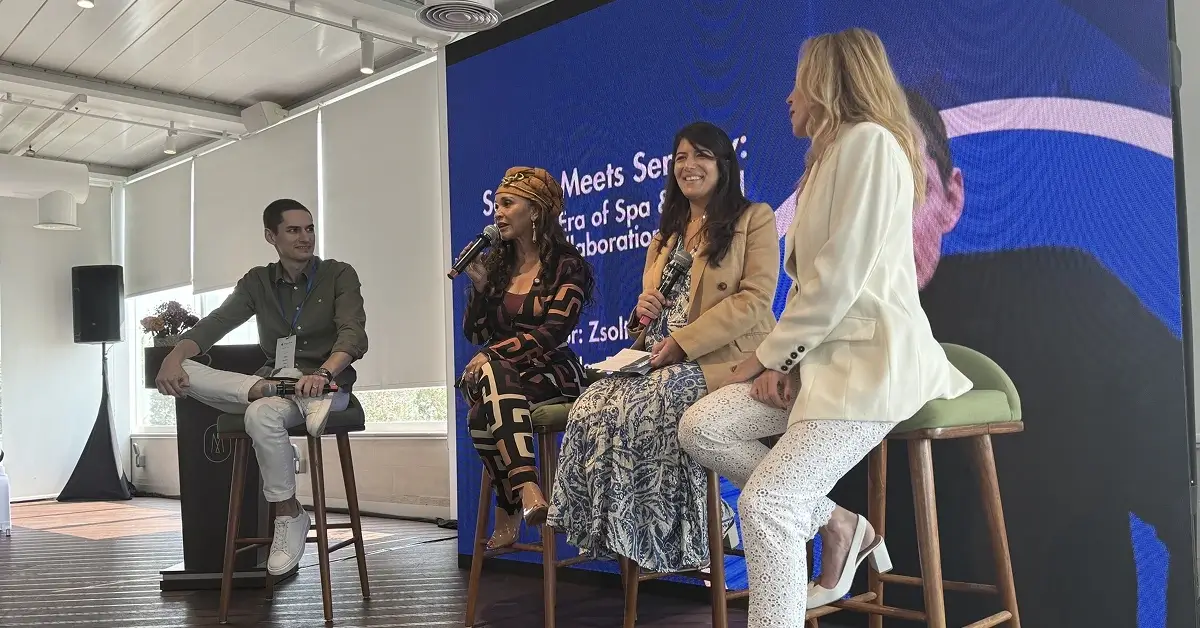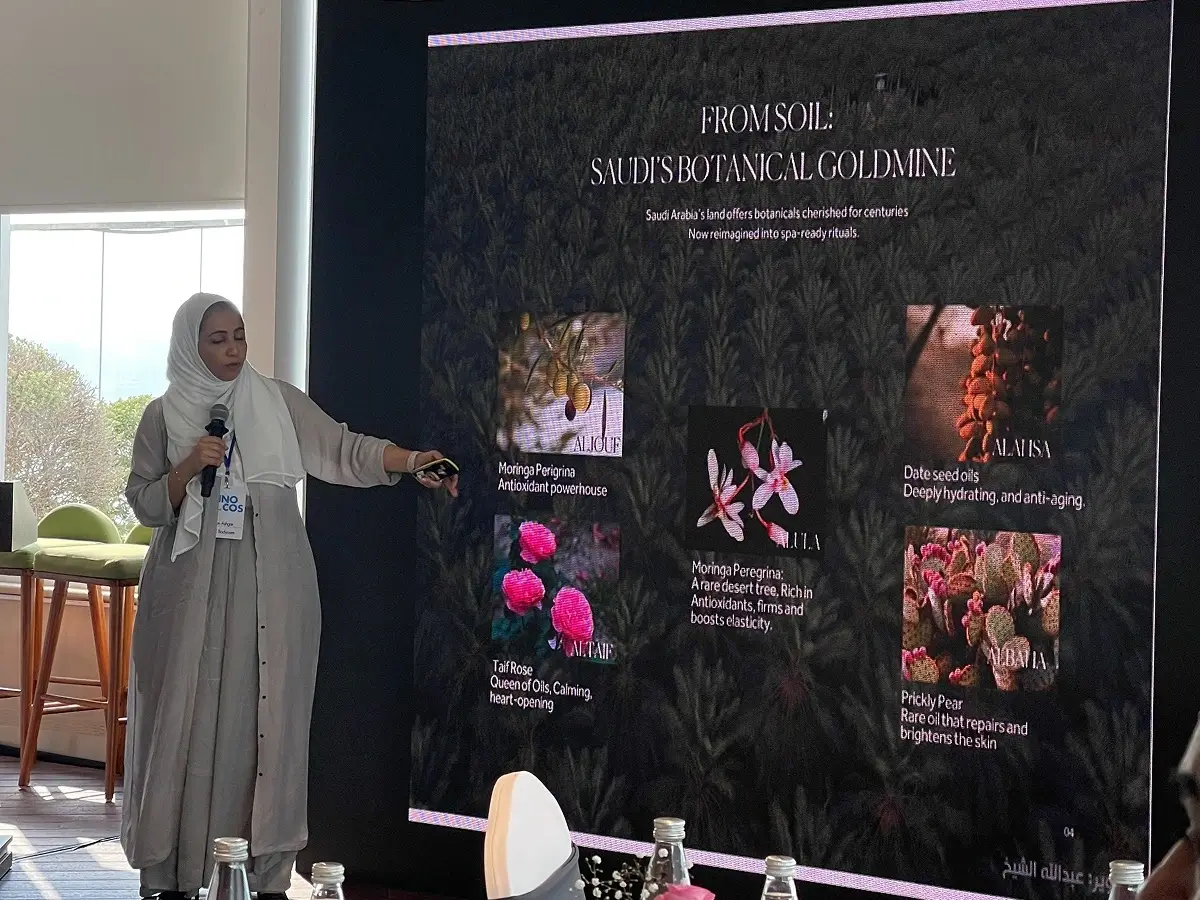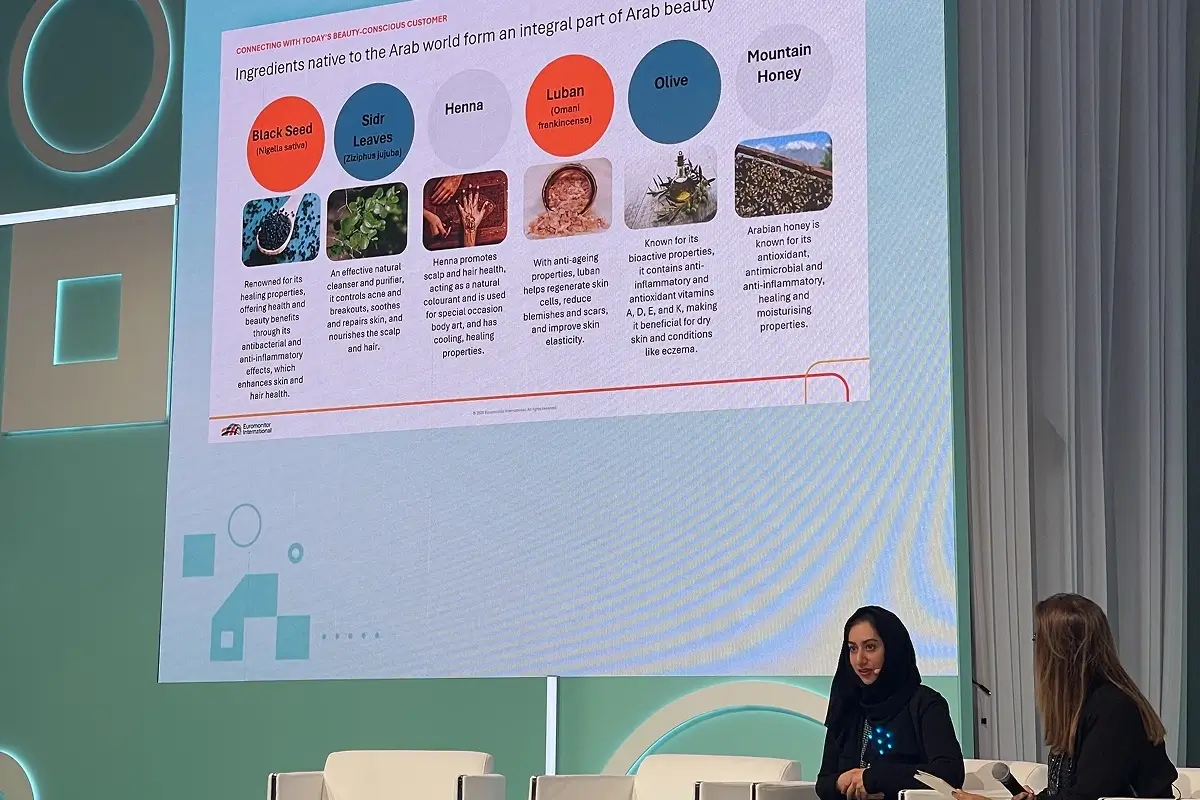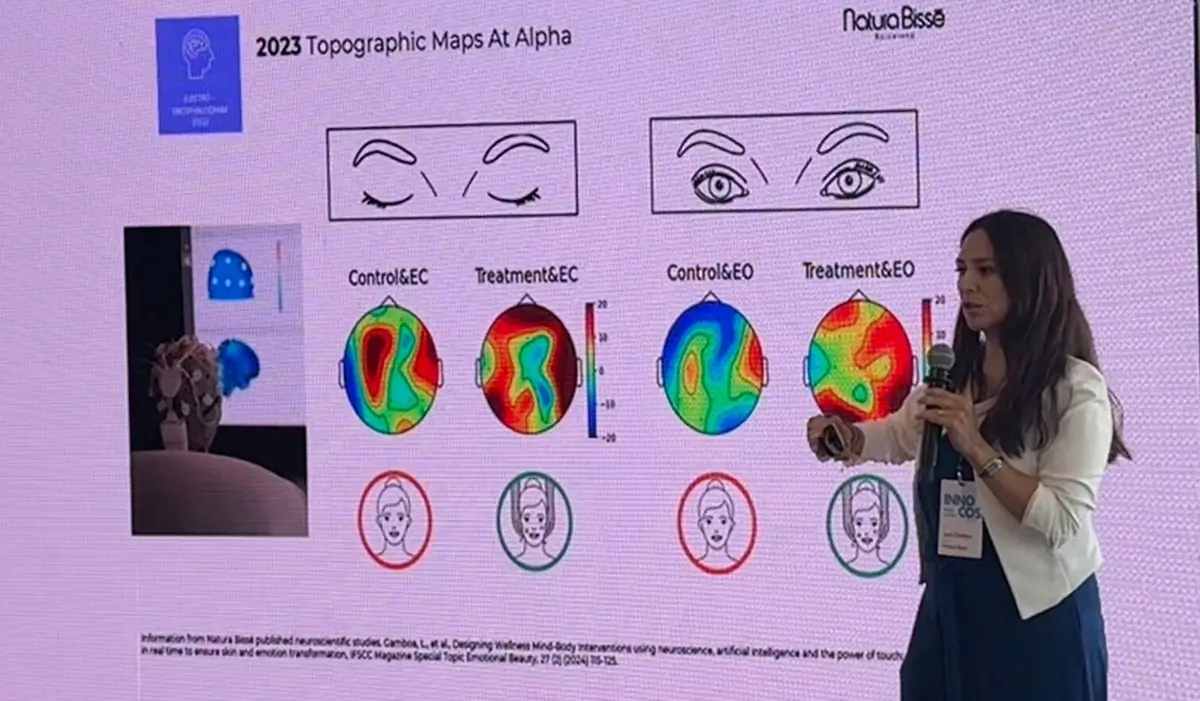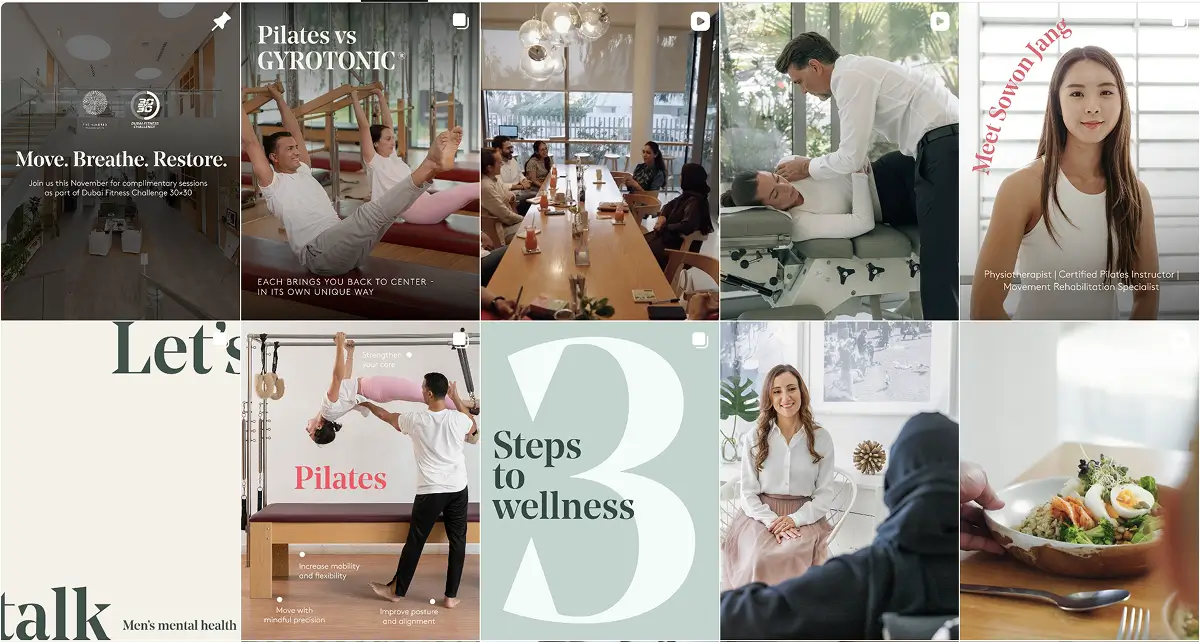The INNOCOS Longevity Summit Dubai 2025, held at The Palm, brought together leading voices from dermatology, spa, retail, and wellness innovation to explore how longevity is reshaping the beauty and wellness economy in the Middle East.
/This report extracts the most significant insights, regional shifts, and innovation trends shaping the future of longevity in the Middle East./
The Future of Longevity in the GCC
The Gulf Cooperation Council (GCC) is rapidly emerging as one of the most dynamic markets for longevity, preventive health, and wellness innovation. The region is entering a new era where well-being is both a lifestyle and an investment sector.
According to insights shared during the INNOCOS Longevity Summit, the GCC’s longevity market is currently valued between 9 and 13 billion USD, representing a fast-growing share of the global wellness economy. The UAE alone contributes over 4 to 6 billion USD, driven by a convergence of medical tourism, luxury hospitality, and private healthcare innovation.
What sets the Gulf apart is its unique fusion of ambition and access: governments are prioritizing healthspan as a measure of progress, while consumers are adopting advanced diagnostics, personalized medicine, and longevity-focused clinics as part of daily life.
From Dubai’s integrative health centers to Saudi Arabia’s regenerative medicine startups, the region is positioning itself as a global longevity hub.
Defining Longevity: From Lifespan to Healthspan
At the Summit, nearly every expert emphasized a simple truth: it’s not about living longer, but living better for longer. The conversation has shifted from lifespan (the total years lived) to healthspan, the number of years lived in good health and vitality.
As Dr. Mishkat Shehata (VP of Emirates Lifestyle And Longevity Medicine Society) explained:
“Lifespan is the number of years we live on Earth; healthspan is the number of years we live in good health without disability.”
She noted that in the GCC, there’s currently a 10-year gap between lifespan and healthspan, better than in the U.S. but still “room for improvement.”
Understanding the Hallmarks of Ageing
Dr. Mishkat Shehata highlighted that the longevity field is guided by twelve Hallmarks of Ageing — biological processes such as cellular senescence, mitochondrial dysfunction, DNA damage, and loss of proteostasis.
These hallmarks represent measurable mechanisms that determine how and why we age. Addressing them through regenerative therapies, metabolic optimization, and lifestyle medicine forms the foundation of the longevity clinic model now emerging across the GCC.
Dr. Kevin Slawin (CEO of Yuuth™) shared this idea from a cellular health perspective:
“Even if we couldn’t extend life expectancy, extending a healthy lifespan would still be a major advance.”
Speakers agreed that closing this gap requires a shift from reactive medicine to proactive longevity, combining preventive diagnostics, personalized care, and holistic lifestyle interventions. As Dr. Sajid Burud (CMO of Superiormed) put it:
“We need to move away from sick-care to health-care – where vitality, not repair, is the goal.”
In essence, the future of longevity in the Middle East is being redefined, not as a privilege of age, but as a state of optimized, sustained well-being across every stage of life.
Skin as the Gateway to Health
One of the most compelling scientific perspectives at the INNOCOS Longevity Summit came from Dr. Kevin Slawin, who reframed the skin not merely as a surface organ but as a central regulator of systemic health.
“The skin is not only the window to our health, it actually controls our health,” said Dr. Slawin.
His 8 years of research suggests that skin health and systemic aging are deeply interconnected. Cellular changes in elasticity, hydration, and mitochondrial function reflect – and even influence – the biological aging of internal organs.
Dr. Slawin referenced the INSPIRE Project, which showed that declining skin elasticity correlates with increased biological age and risk for age-related diseases such as cognitive decline, osteoporosis, and cardiovascular issues.
“Improving the health of your skin can actually impact the health of your entire body,” he explained.
This emerging field – sometimes called dermo-longevity – positions the skin as both a diagnostic biomarker and a therapeutic entry point for interventions that enhance vitality, immunity, and cellular regeneration.
In practice, this means that skincare is evolving into healthcare, and the beauty industry is at the threshold of a new era where topical formulations, light therapies, and mitochondrial-targeting actives are designed not only for appearance but for whole-body resilience.
The Longevity Clinic Ecosystem in the GCC
The Middle East’s medical landscape is undergoing a transformation. Traditional “sick care” systems – focused on treating illness – are evolving into integrated, longevity-focused ecosystems centered around prevention, optimization, and vitality. The region’s clinics are becoming innovation labs where medicine, technology, and wellness converge.
From Reactive to Preventive Medicine
As Dr. Sajid Burud described, the medical model is shifting fundamentally:
“We need to move away from sick-care to health-care, where vitality, not repair, is the goal.”
Longevity clinics across Dubai, Riyadh, and Doha now emphasize early diagnostics, biomarker testing, and metabolic optimization instead of end-stage intervention. IV therapy, hormonal rebalancing, and mitochondrial treatments have become cornerstones of these new medical wellness centers.
Functional Medicine and Integration
According to Dr. Mishkat Shehata, this shift also requires collaboration across medical disciplines:
“Research, academia, insurance, and clinical practice must start talking to each other.”
The emerging model merges functional medicine, AI-assisted diagnostics, and lifestyle coaching to create truly personalized health protocols.
Clinics such as Superior Med, DNA Health, and Aviv Clinics are setting regional benchmarks for integrating cutting-edge medical science with consumer experience.
A New Market of Health-Conscious Consumers
The GCC’s longevity clinics are not just serving patients, they’re catering to performance-driven consumers. These clients seek measurable results: higher energy, improved cognitive function, and delayed biological aging.
Dubai, in particular, is positioning itself as a medical tourism hub for longevity, attracting regional and global clientele seeking the balance between luxury and science.
Wellness Tourism & Longevity Hospitality
The Gulf region is redefining luxury travel through the lens of longevity and science-backed wellness. Today’s traveler seeks more than five-star comfort, they want personalized health optimization, mental clarity, and measurable rejuvenation.
The wellness traveler in the GCC now spends 35–40% more per trip than the average tourist, making this segment one of the most lucrative in the regional tourism mix.
This shift is fueling a new wave of longevity hospitality, where medical diagnostics, biohacking therapies, and mindfulness programs are seamlessly integrated into luxury experiences.
According to the Global Wellness Institute, wellness tourism in the Middle East is among the fastest-growing worldwide, projected to expand by over 20% annually through 2027. With visionary initiatives such as Dubai’s Health Experience and Saudi Arabia’s Vision 2030 wellness destinations (including AMAALA and The Red Sea) the region is positioning itself as a global hub for regenerative travel.
The Rise of the Longevity Resort
From Clinique La Prairie’s planned expansions to Superior Med’s integrative retreats, the Middle East is witnessing a wave of medical-meets-hospitality concepts. These properties merge advanced diagnostics and biohacking therapies with mindfulness programs and spa rituals, creating destinations where healthcare meets haute couture.
As Soraya Jouzi noted during the Spa Panel:
“We’re seeing hotels partnering with medical brands – it’s the next evolution of wellness in the region.”
Luxury hospitality groups are now collaborating with biotech and medical wellness partners to deliver evidence-based rejuvenation programs, tailored nutrition, and neuro-spa experiences.
The Dubai Model: Hybrid Experiences
Dubai continues to lead the region’s transformation. Its medical tourism strategy, paired with its global hospitality infrastructure, positions it as the epicenter of longevity travel.
- Longevity programs are being integrated into hotel spa menus.
- Partnerships between plastic surgeons, nutritionists, and spa brands like 111SKIN are creating fully immersive wellness journeys.
Guests are increasingly seeking “results-based relaxation” – combining measurable outcomes with indulgent care.
“The future spa is a longevity hub, where science, spirit, and sustainability meet,” said Karen Mutasa, founder of MWEYA.
Saudi Arabia’s Wellness Ambition
As part of Vision 2030, Saudi Arabia is heavily investing in wellness-led destinations such as AlUla and The Red Sea Project, both integrating sustainability and holistic wellbeing into luxury hospitality. Local brands like MNZ Bodycare are also contributing to the ecosystem by developing locally sourced, culturally rooted spa products that reflect Saudi’s natural heritage.
As Muzon demonstrated, the region’s wellness future is built on local ingredient sovereignty. Saudi brands are turning native botanicals like moringa peregrina, olive oil from Jof, and date-seed oil into clinically tested antioxidant powerhouses.
This push for locally formulated, globally competitive products not only supports sustainability but positions the Middle East as a source of raw materials and innovation for the international longevity economy.
Global Travelers, Local Roots
What sets the Middle Eastern approach apart is the balance between global standards and regional authenticity. Treatments often integrate native botanicals – like moringa, date seed oil, and rosewater – into modern longevity protocols, creating a sense of cultural continuity within innovation.
In essence, the GCC’s wellness tourism sector is evolving into a longevity-driven lifestyle industry, one that transforms travel from a momentary escape into a catalyst for sustained vitality and regeneration.
Arabic native ingredients explained in a panel discussion at Beautyworld Middle East.
Predictions: 2026–2030 Longevity Trends
Between 2026 and 2030, the Middle East is set to emerge as a global leader in the longevity economy, redefining how health, beauty, and wellness intersect.
Drawing on insights from the INNOCOS Longevity Summit Dubai, the following predictions outline the key trajectories that will shape the next five years of the GCC’s longevity landscape.
Longevity Will Become the New Luxury
By 2030, longevity will replace traditional luxury as the region’s most desirable lifestyle indicator. Consumers in the UAE, Saudi Arabia, and Qatar will increasingly view youthful vitality, cognitive clarity, and resilience as the ultimate status symbols.
This will reshape sectors from beauty to real estate, think longevity memberships, performance-based wellness resorts, and curated health optimization experiences for HNWIs.
As one panelist noted, “The new definition of luxury is having time and the vitality to enjoy it.”
Clinics Will Evolve into Lifestyle Brands
The longevity clinic of the next decade won’t just be a medical facility; it will operate as a 360° lifestyle ecosystem.
- Advanced health testing and AI diagnostics will pair with nutrition, mental health support, and digital follow-up programs.
- Clinics like Superior Med and DNA Health are already evolving into brands that provide continuous care ecosystems, supported by wearables and data apps.
- Expect crossovers with fitness, fashion, and hospitality sectors to create seamless longevity lifestyles.
Neuroaesthetics and Mental Longevity Will Dominate
Following Natura Bissé’s pioneering work on neuroscience-based skincare, mental and emotional longevity will become central to wellness offerings.
- Spas and retreats will introduce treatments targeting stress biomarkers, cognitive rejuvenation, and sensory therapy.
- Longevity programs will include brain mapping, sleep optimization, and emotional resilience training.
As Laura Gamboa (Natura Bissé) said:
“There is no future of longevity without mental well-being. If your mind isn’t there, is it even worth it?”
Regional Ingredients Will Go Global
Local natural resources – from Saudi date seed oil to Omani frankincense – will take center stage in global longevity beauty.
- Brands such as MNZ Bodycare are leading this movement by connecting heritage ingredients with scientific validation.
- Expect GCC-origin wellness brands to compete internationally by 2028, especially in clean formulation, microbiome care, and antioxidant therapy.
This trend will reinforce the Middle East’s growing identity as a cultural innovator in wellness, not just a consumer of Western science.
The Rise of Data-Driven Personalization
Longevity will increasingly be powered by data. Wearables, genetic testing, and AI-enabled diagnostics will enable consumers to understand and manage their biological age in real time.
- Personalized supplements, precision skincare, and tailored nutrition will become standard offerings.
- Data platforms will create a bridge between medical clinics, home devices, and lifestyle apps, turning longevity into a measurable routine rather than an abstract goal.
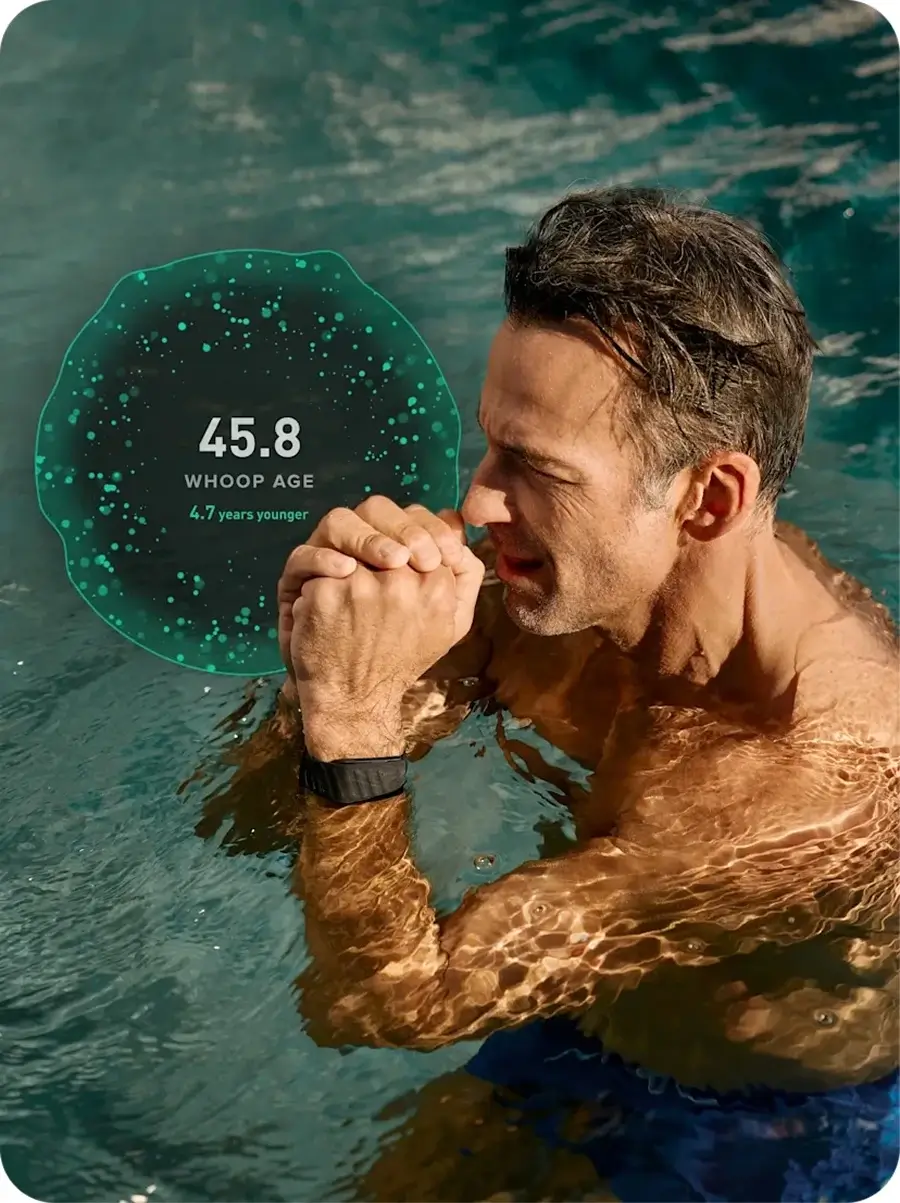
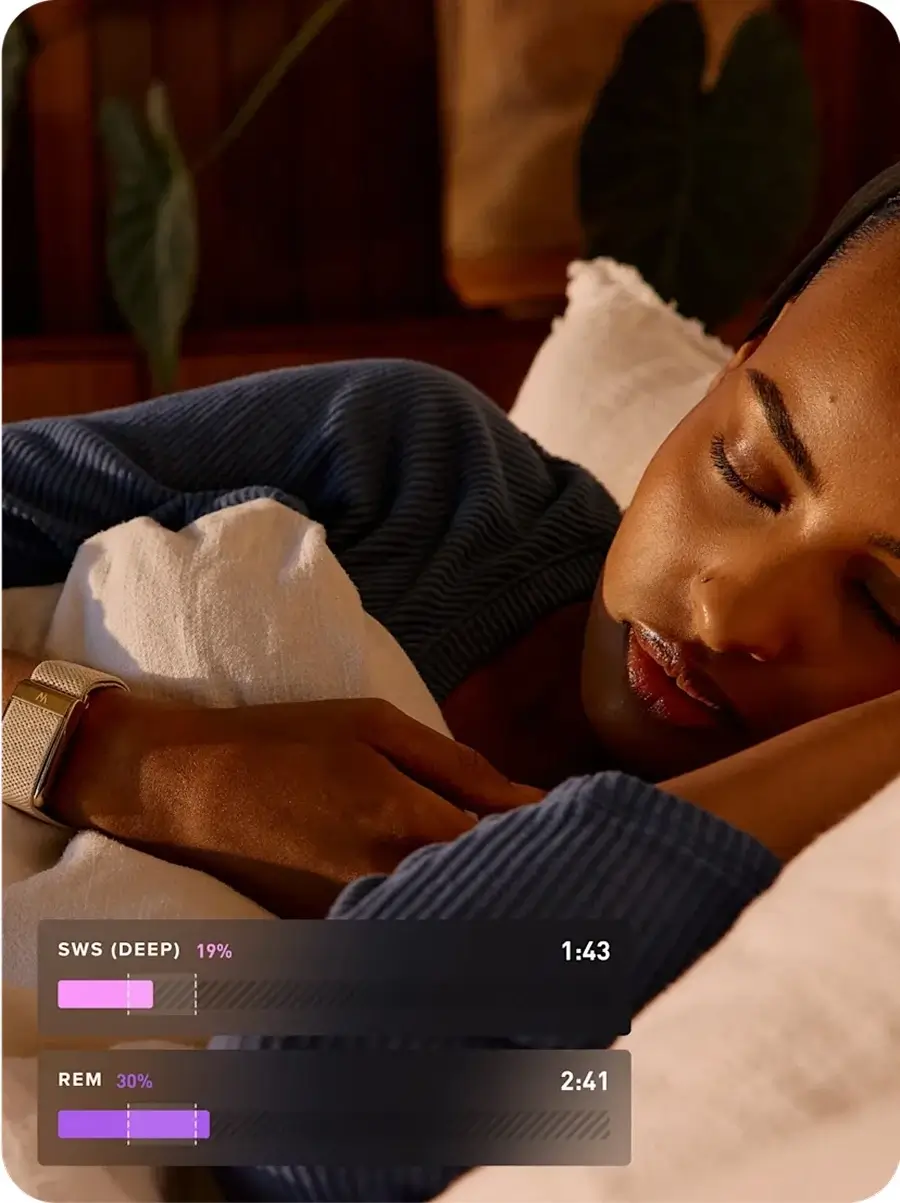
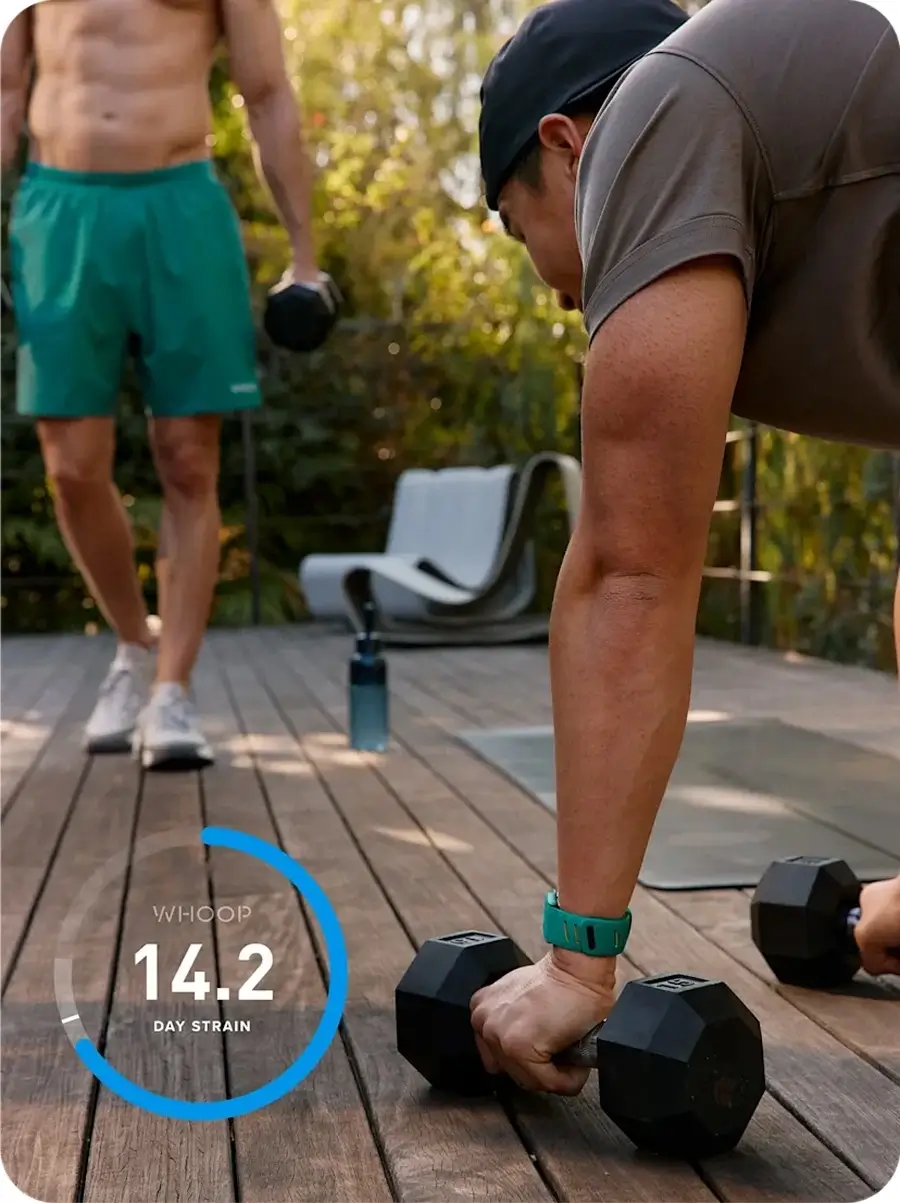
WHOOP visualizes longevity through data. Whether in the pool, at rest, or mid-workout, each moment becomes measurable.
Longevity Nutrition & Gut Intelligence
The next phase of biohacking in the region will focus on gut longevity – using AI-linked nutrition tracking and microbiome testing to personalize diet and supplements.
Expect longevity cafés, nutraceutical clinics, and health-centric F&B concepts to emerge across Dubai and Riyadh.
The Middle East as a Global Longevity Hub
By 2030, the GCC – especially Dubai and Riyadh – will stand alongside Switzerland, Singapore, and California as one of the world’s top longevity innovation hubs.
The region’s ability to blend science, spirituality, and hospitality will define its competitive edge in the future of longevity, attracting global talent, investment, and medical tourism.
Scalp Health: The Next Frontier of Longevity Beauty
In the Middle East, scalp health is emerging as a core pillar of longevity beauty, reflecting a shift from aesthetic hair care to cellular and microbiome wellness.
The region’s climate – characterized by heat, humidity, and desalinated water – can compromise scalp balance, making targeted care essential.
Brands like Harklinikken Middle East and The Hair Addict are pioneering treatments focused on follicular longevity, hydration, and barrier repair, viewing the scalp as an extension of the skin. As understanding deepens around the scalp–skin–gut axis, this category is expected to expand rapidly, driven by consumer demand for holistic approaches that promote both hair vitality and overall wellbeing.
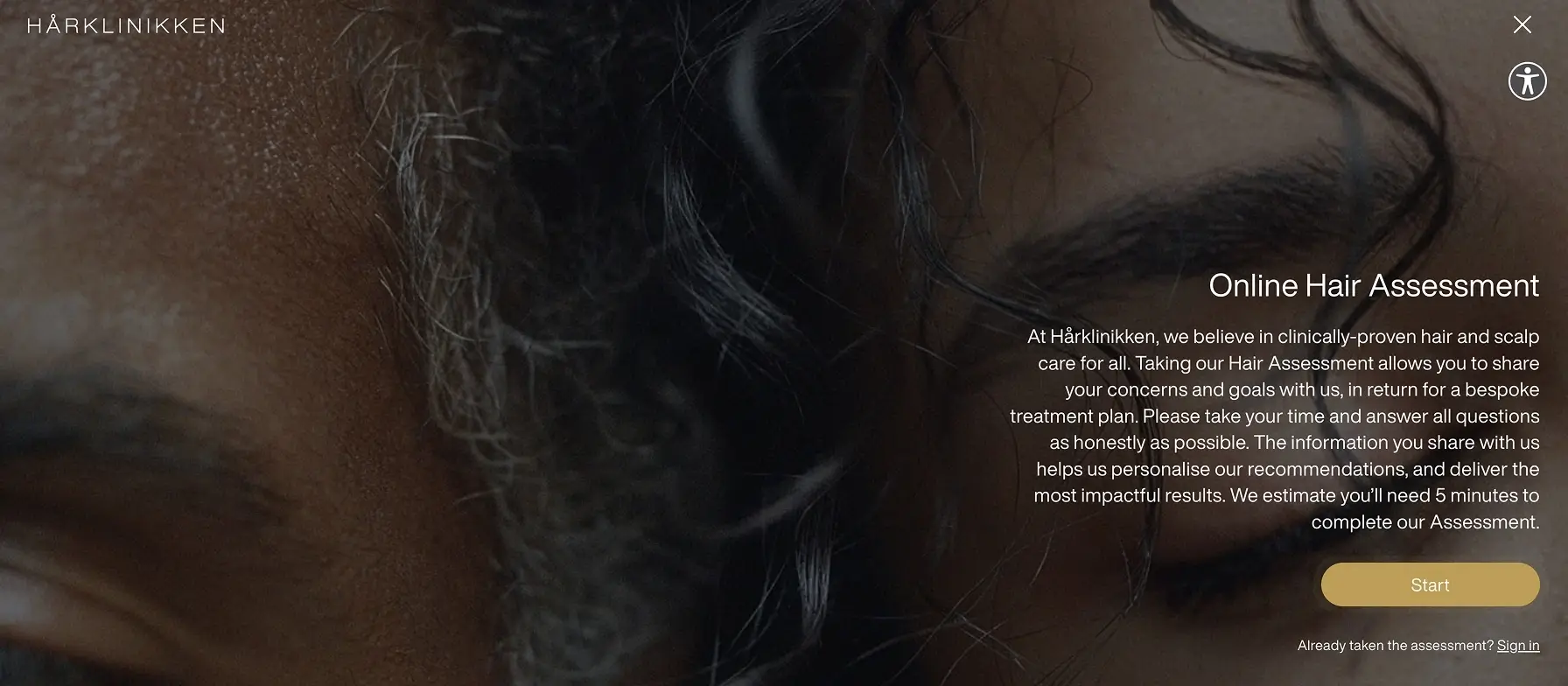
Conclusion
What began as a luxury-driven pursuit of youth is evolving into a holistic vision of lifelong vitality, powered by science, culture, and consciousness. Across the GCC, longevity is being embedded into healthcare systems, hospitality experiences, and everyday consumer choices, transforming the region from a destination for wellness to a driver of global wellbeing innovation.
Fueled by investment, vision, and a young, health-aware population, the Gulf stands at the intersection of biotech, spirituality, and design, where regenerative medicine meets ritual, and where ancient practices coexist with AI diagnostics.
As the global conversation shifts from lifespan to healthspan, the Middle East is shaping the future of longevity, offering a new definition of modern prosperity measured not by wealth or status, but by energy, resilience, and the ability to live fully, longer.
